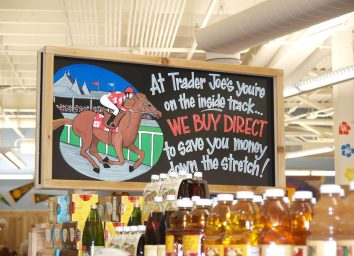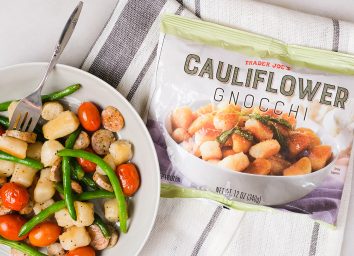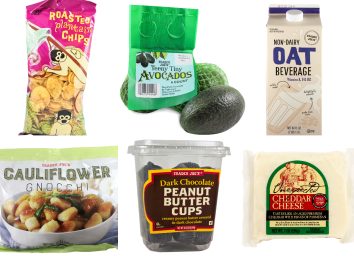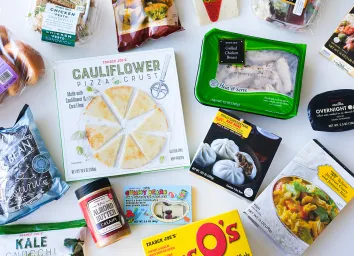How To Buy Premium Coffee at Trader Joe’s
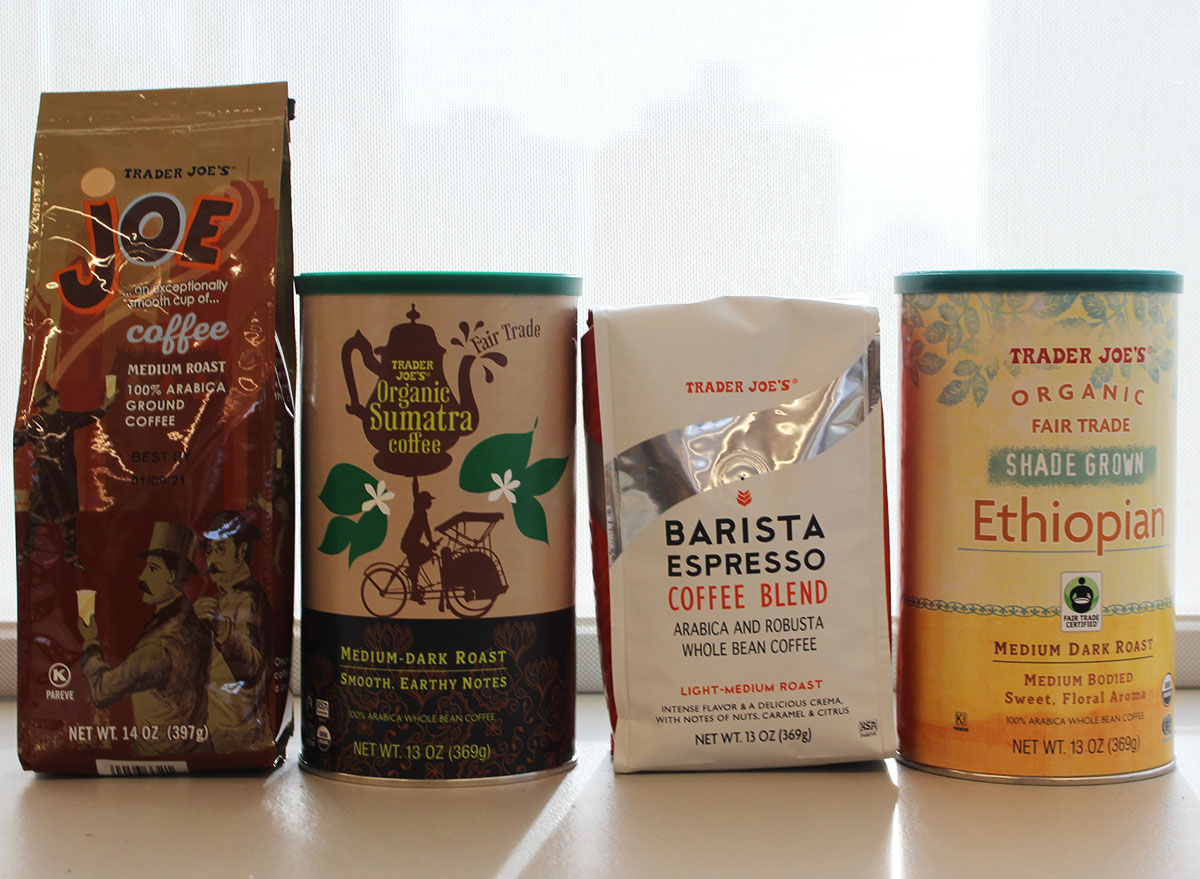
More than half of the American population enjoys a cup of coffee every day. Whether you’re buying it straight from your favorite roasting company, online, at the coffee shop by the office, or from your grocery store, we can argue that it would probably be cheaper and simpler if you just bought it at Trader Joe’s. But there’s one problem, especially for grocery store coffee newbies: How do you find Trader Joe’s coffee that isn’t bitter, bland, or already stale?
Debbie Wei-Mullen is the Founder and CEO of Copper Cow Coffee, a Vietnamese Pour Over coffee startup. They sell individual pour-over sachets for a fresh brew every morning, and they also have naturally flavored coffees (like Churro and Lavender). But if you’re in the market for a whole bag instead of individual servings, Wei-Mullen set the record straight with us on how to find premium coffee at a grocery store like Trader Joe’s.
“Everything matters, from what’s in the soil of the coffee plant when it grows to the way that you brew it and grind it at the end,” says Wei-Mullen. “Every step will actually change the flavor and quality of the coffee.”
It’s not easy navigating the at-home coffee scene. We’ve made it easy: Below are the factors that you should keep in mind when shopping, along with hand-picked recommendations next time you make a trip to TJ’s.
How to choose the best coffee
Next time you’re going to pick up a bag of coffee, here are a few tips to remember so you can buy the best possible premium coffee possible.
Always go for the whole bean.
“If you’re buying coffee in bulk, whole bean coffee is going to hold up much better,” Wei-Mullen says. “When you buy a big bag of pre-ground coffee and you open it, you basically have a really short shelf-life for that coffee.”
Luckily, Trader Joe’s abounds with whole bean varieties. Before you whine about not having a coffee grinder, buy one. A good burr grinder, which allows you to control the coarseness of your grind, will only run you about $30.
Even if you’re a Keurig devotee, avoid buying pod coffee. Wei-Mullen explains that since they’re in a plastic cup, it limits the temperature of the water and thus creates a not-so-great cup of Joe. As a better option, purchase a reusable Keurig pod and fill it with your own coffee.
If you’d rather pre-ground coffee, check the packaging.
While buying the whole-bean is ideal, buying pre-ground coffee will still get the job done. One thing to check before you buy is the packaging. “If it’s a ground coffee bag, then you want it to be completely airtight,” says Wei-Mullen. The more air that gets into the bag, the staler your coffee will get. You’ll know when you’re drinking stale coffee.
Check the label.
There are a few things you should be looking at on the label when you weigh your options. “Definitely look at roast dates and check that the coffee was roasted in the past six months to a year,” says Wei-Mullen. “You’d be surprised at how much coffee in the grocery store is sitting longer than that.”
Next, look at the origin. If there’s no affiliation as to where the coffee is coming from, Wei-Mullen says that means the beans were probably brought in from all over and roasted to a dark enough level that it tastes consistent. The end result? A bitter, unsatisfying cup of joe. A listed origin “means that they’re being picky about their supply chain, that there is an intention for that blend to have a consistent flavor that’s natural and not from over-roasting or artificial flavors.”
Lastly, don’t out rule non-organic blends. Some farms are not certified organic but still produce organic-grade beans. A fair-trade coffee is something to look for, though, because it means that the producers (who are from developing countries) are being paid fair, livable wages.
Price actually matters.
Sometimes a higher price point doesn’t guarantee a better product, but in the case of coffee beans, Wei-Mullen says it does. Everything from the farming practices (organic vs. non-organic) to the type of bean affects the price you’ll pay. Price isn’t more important than the origin or the quality of the bean, but it’s something to keep in mind.
Which Trader Joe’s coffee brands to buy
Bearing in mind all of Wei-Mullen’s expert tips, we did some shopping to see which coffee at Trader Joe’s actually stacks up.
Best Dark Roast Coffee from Trader Joe’s
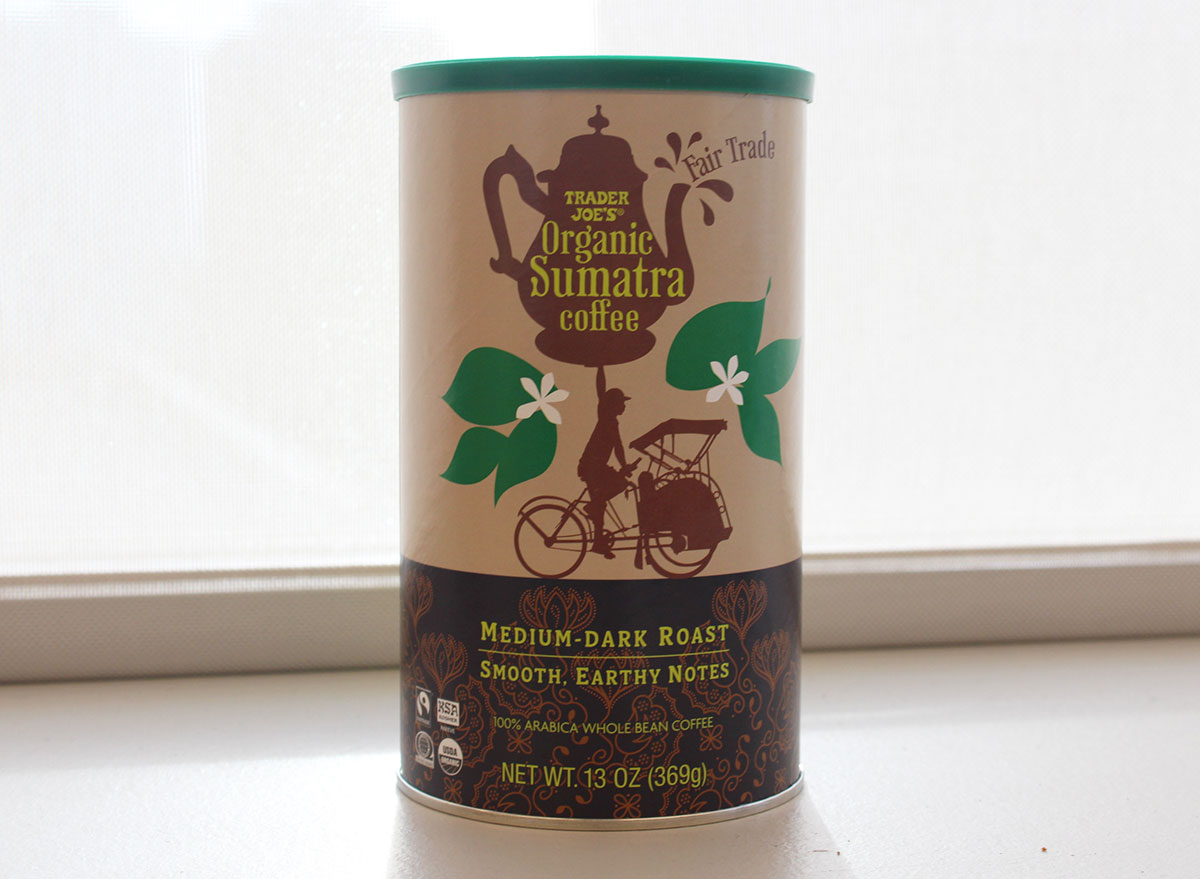
For a darker cup, pick up a container of Organic Sumatra Coffee. This is one of those fair-trade coffees with whole beans.
Best Medium Roast Coffee from Trader Joe’s
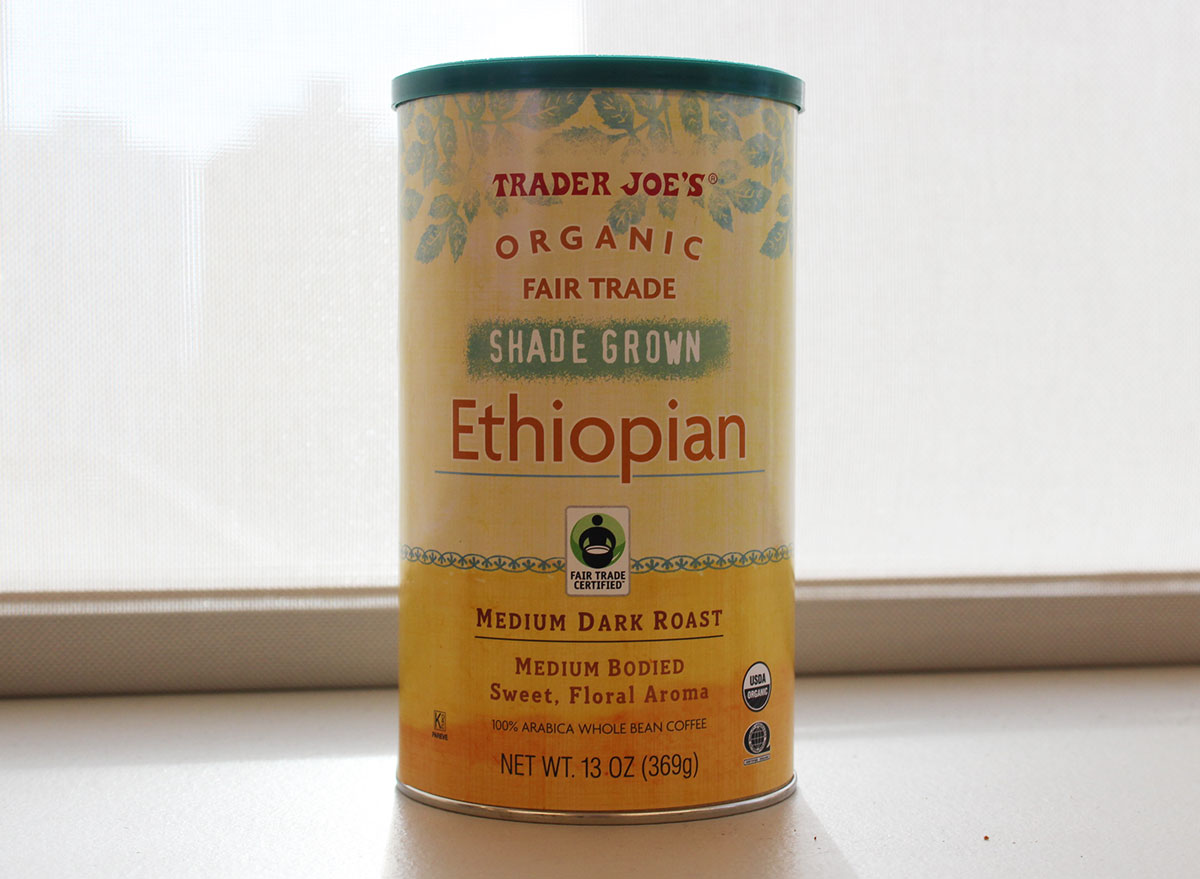
For a lighter cup of coffee, grab the Organic Fair Trade Ethiopian Coffee.
Best Pre-Ground Coffee from Trader Joe’s
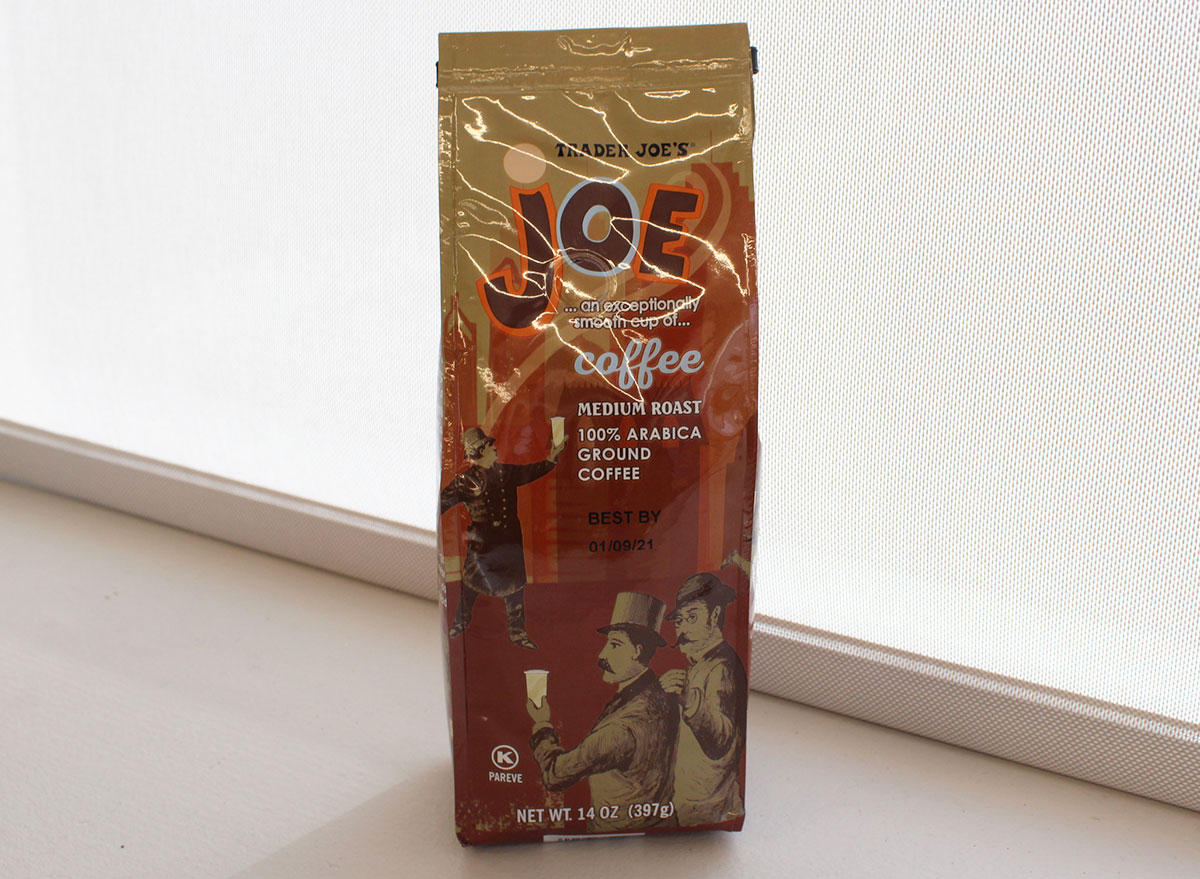
Don’t have a grinder? Snag a bag of Joe Medium Roast. The coffee is already ground and sealed tight. One Trader Joe’s employee even told us it’s their favorite coffee to buy while we were checking out!
Best Espresso from Trader Joe’s
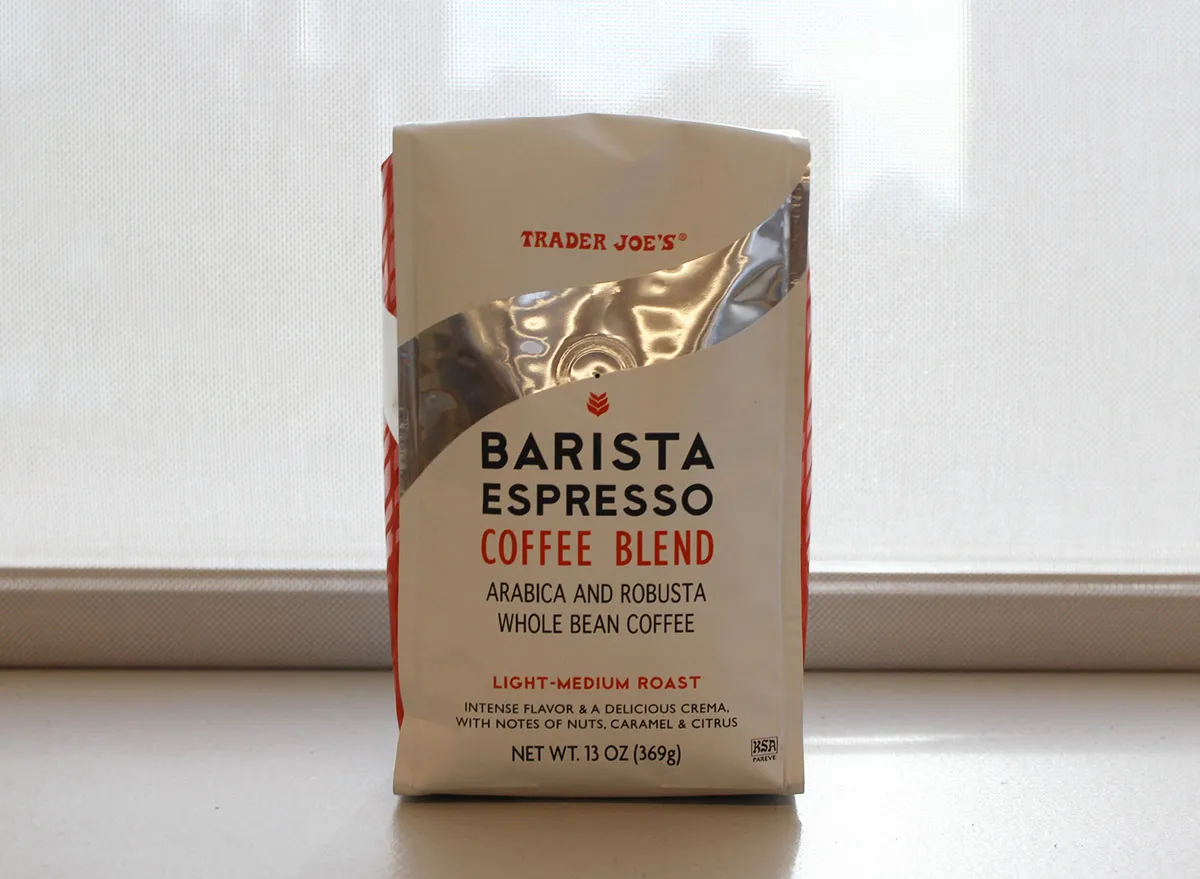
If you’re in the market for a good espresso blend, the Barista Espresso Coffee Blend is the way to go. This whole bean coffee is a light-medium roast and great for an afternoon pick-me-up.
